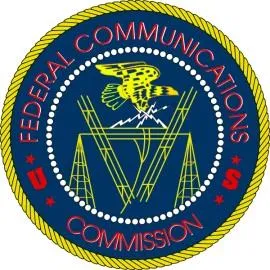Did the FCC?s AT&T/T-Mobile report manipulate the facts?

According to a new analysis appearing in The Hill’s Congress Blog, the FCC changed one of the numerical benchmarks it uses to analyze market competition in order to produce a report critical of the AT&T/T-Mobile merger. That’s the conclusion of Larry Downes, industry analyst and author of The Laws of Disruption: Harnessing the New Forces that Govern Life and Business in the Digital Age.
The FCC uses a measure called a “spectrum screen” to identify local markets in which a proposed merger might raise competitive concerns. “The FCC adds up the amount of radio spectrum the combined entity would control and compares it to the total spectrum that is or will soon be available and usable for mobile services in that market.” If the total remains below one-third of usable spectrum, then the market is competitive, and the FCC doesn't need to conduct further investigation.
The FCC's staff report said that an AT&T/T-Mobile entity would control more than one-third of the available spectrum in 274 of roughly 700 local markets. But according to Downes, “…the staff only reached these findings after first reducing the amount of spectrum that triggers the screen by 12.5 Mhz.—roughly 10 percent.” That arbitrary and unannounced 10 percent meant, “82 of (the markets) – almost a third – are included only if the new, lower total is applied.”
This is the first time that the FCC has reduced the amount of spectrum in the screen since it first introduced the measure in 2004. This, despite the fact that more spectrum has become available since the last merger review, most notably by Clearwire, which is majority-owned by Sprint. Clearwire owns more spectrum than any other wireless provider, and is in the marketplace providing wireless service on this spectrum. The FCC staff report never explains why it did not include Clearwire's spectrum in its screen.
Nor does the FCC staff report explain why it reduced the amount of spectrum currently available for use. It buries the change in a footnote in the report.
The Hill story finds that, “These changes were never disclosed, never made available for comment, and never voted on by the Commission.” The result, said Downes, is an FCC that has shown itself to be “willing to cook the numbers and ignore its own rules, data, and basic agency law...”
FCC plays fast and loose with the law...again (The Hill, Dec. 8, 2011)
The Laws of Disruption: Harnessing the New Forces that Govern Life and Business in the Digital Age (Larry Downes, Basic Books, 2009)
CWA members oppose AT&T’s attempts to stop serving rural and low-income communities in California
CWA urges FCC to deny industry attempts to loosen pole attachment standards
CWA District 6 reaches agreement with AT&T Mobility



